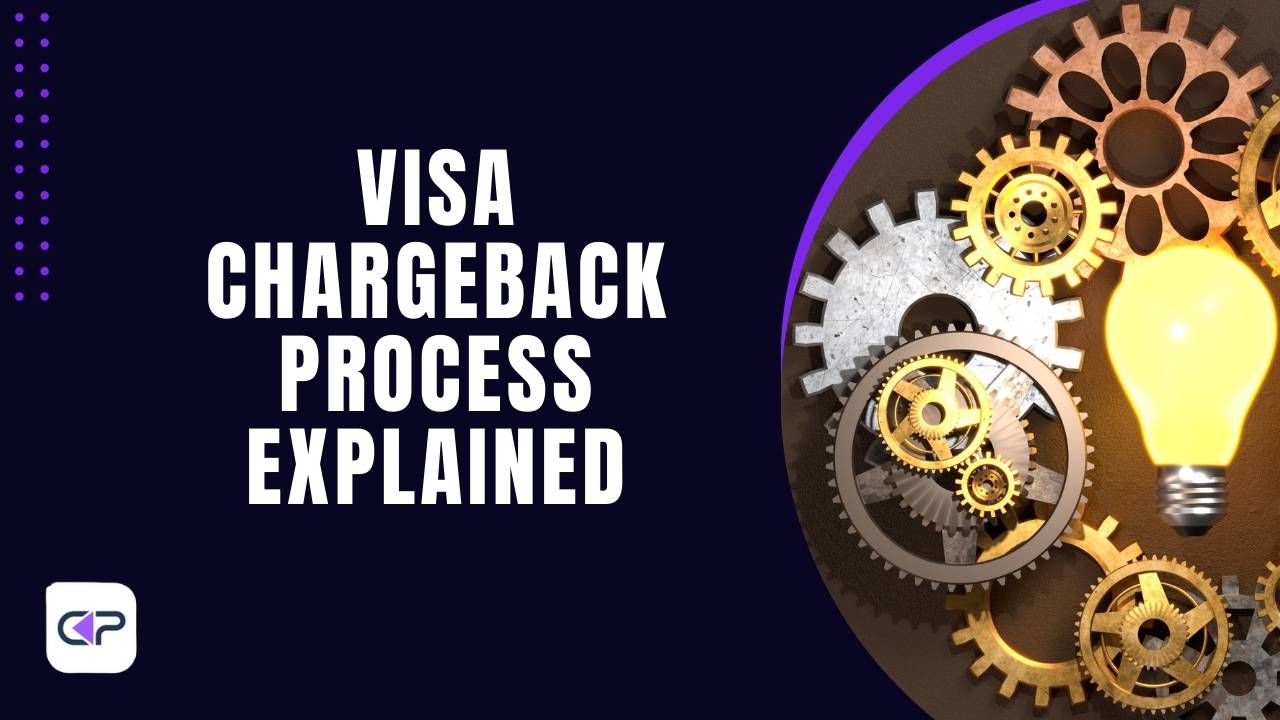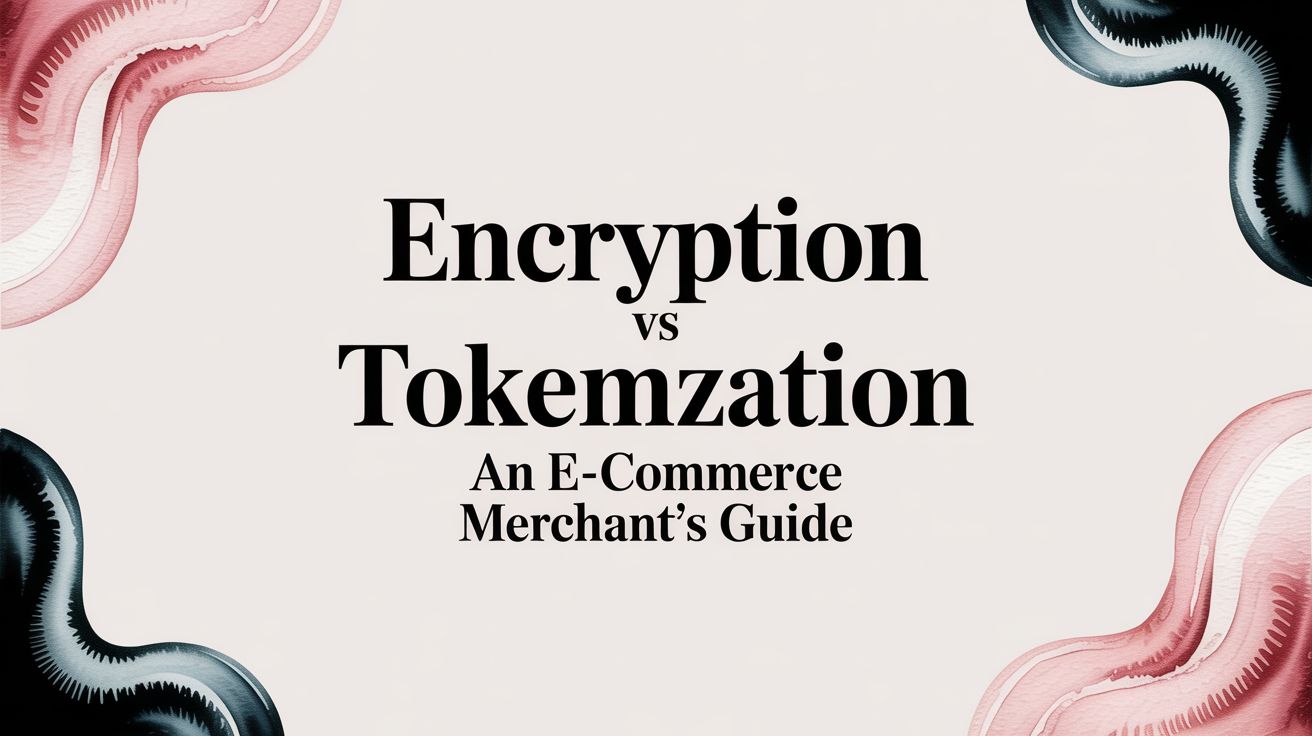
In global electronic transactions, the Visa chargeback process stands as a pivotal aspect of ensuring fair and secure commerce.
As merchants engage in online transactions, understanding the complexities of Visa chargebacks becomes essential for maintaining financial stability and customer trust.
This article explains the Visa chargeback process, unfolding its complexities and highlighting key considerations for merchants.
From the initiation of a dispute to the potential consequences of the Visa Chargeback Monitoring Program, this exploration serves as a guide for merchants, urging them to stay vigilant and proactive in navigating the nuanced world of chargebacks.
As we get into the Visa chargeback process, merchants are encouraged to adopt a vigilant stance, embracing transparency and best practices to navigate the challenges and safeguard their businesses in the dynamic realm of electronic payments.
Why do Chargebacks Happen?
Chargebacks are an unfortunate reality of online transactions, affecting merchants and cardholders alike. Understanding the reasons behind chargebacks is crucial for merchants to navigate the Visa chargeback process effectively.
1. Unauthorized Transactions
One common reason for chargebacks is unauthorized transactions. When cardholders notice an unfamiliar charge on their statement, they may dispute it, leading to a chargeback. Merchants should ensure that their payment processes are secure to prevent unauthorized transactions.
2. Transaction Disputes
Disputes often arise when there is a discrepancy between the product or service received and what was expected.
It could be due to misunderstandings, delivery issues, or dissatisfaction. Providing clear product descriptions, shipping details, and responsive customer support can help mitigate transaction disputes.
3. Fraudulent Activities
Credit card fraud remains a significant concern. If a cardholder detects fraudulent activity on their account, they may initiate a chargeback.
Merchants must implement robust security measures, such as address verification and CVV checks, to minimize the risk of fraud.
4. Processing Errors
Errors during payment processing, such as duplicate charges or incorrect amounts, can trigger chargebacks.
Merchants should regularly review their transaction records to identify and rectify any processing errors promptly.
5. Failure to Recognize the Charge
In some cases, cardholders may not recognize a charge due to the use of a different business name or a subsidiary name during the transaction.
Merchants should ensure their business name is easily identifiable on customers' billing statements.
6. Subscription Cancellations
Chargebacks may occur when customers need to remember or find it challenging to cancel subscription services. Clear communication about subscription terms, and cancellation procedures, and providing easily accessible cancellation options can prevent chargebacks in such cases.
Knowing the reasons behind chargebacks empowers merchants to proactively address potential issues and enhance their overall customer experience.
By implementing secure payment processes, providing transparent information, and resolving disputes promptly, merchants can reduce the occurrence of chargebacks and navigate the Visa chargeback process more effectively.
Visa Chargeback Process
Navigating the Visa chargeback process is essential for merchants to protect their businesses and maintain positive customer relationships. This section provides a simplified overview of the key stages involved in handling chargebacks efficiently.
The Visa chargeback process is a structured series of steps designed to address transaction disputes and protect the interests of both cardholders and merchants.
By understanding each stage, merchants can equip themselves with the knowledge needed to respond effectively, potentially overturn chargebacks, and maintain a secure and trustworthy transaction environment.
1. First Presentment
The Visa chargeback process begins with the initial transaction, known as the "First Presentment." During this phase, a cardholder makes a purchase, and the merchant submits the transaction details to the acquiring bank for processing.
It is vital for merchants to accurately capture and transmit information to minimize the risk of chargebacks at this early stage.
Providing clear product descriptions, accurate billing information, and ensuring secure payment processing are fundamental in preventing issues that may lead to chargebacks during the First Presentment.
2. Customer Dispute
In chargebacks, when a cardholder raises concerns—be it due to an unrecognized charge or unmet promises by the merchant—a distinct process unfolds.
This journey takes a noteworthy turn in the Visa chargeback process, particularly with the introduction of Visa Claims Resolution (VCR) in 2018.
Breaking away from the conventions that had remained largely unchanged for nearly 50 years in the chargeback system, Visa embarked on a transformative initiative with VCR.
The primary objective was clear: to streamline and modernize the chargeback and dispute resolution process. VCR was designed to simplify procedures, reduce timelines, and enhance overall efficiency for merchants, issuers, acquirers, and processors.
It's crucial to understand that VCR not only brought about positive changes but also accentuated the disparities between the Visa chargeback process and those of other card networks.
This shift, while aiming for clarity and efficiency, did introduce a degree of confusion for merchants and financial institutions navigating the evolving landscape of chargeback resolution.
3. Bank Investigation
Following a cardholder's dispute and the initiation of the Visa chargeback process, the next crucial phase involves the Bank Investigation. This step is marked by the bank's active role in seeking resolution. Notably, Visa Resolve Online becomes a pivotal tool during this stage.
In response to a chargeback, banks often leverage Visa Resolve Online to request essential data from both the merchant and the cardholder. This data serves as the foundation for the investigation, aiding banks in understanding the nuances of the disputed transaction.
Visa Resolve Online acts as a centralized platform facilitating seamless communication and data exchange between all involved parties. Banks utilize this tool to collect evidence, transaction details, and relevant information from merchants. Simultaneously, it enables cardholders to provide additional context and supporting documentation.
This data-driven approach enhances the precision and effectiveness of the Bank Investigation phase. The utilization of Visa Resolve Online streamlines the process, allowing banks to make informed decisions based on a comprehensive set of facts. This ensures a fair and transparent resolution, aligning with the overarching goals of the Visa chargeback process.
4. Bank Makes Decision
As the Bank Investigation phase unfolds in the Visa chargeback process, a critical juncture is reached when the bank must make a decision regarding the disputed transaction.
This decision-making process involves a thorough review of the evidence and information gathered during the investigation, ultimately determining whether the chargeback is valid or should be rejected.
4 Key Considerations in Bank Decision-Making
1. Examination of Evidence
Banks meticulously analyze the evidence presented by both the cardholder and the merchant. This may include transaction records, receipts, shipping details, and any additional documentation relevant to the dispute.
2. Adherence to Visa Chargeback Rules
The decision-making process adheres to the established Visa chargeback rules and regulations. These rules provide a framework for evaluating the validity of the dispute and ensuring a fair resolution.
3. Communication with Merchants and Cardholders
Throughout the decision-making phase, effective communication is maintained with both merchants and cardholders. This ensures clarity, transparency, and the opportunity for parties to provide any additional information deemed necessary.
4. Application of Visa Resolve Online Data
Data obtained through Visa Resolve Online plays a crucial role in the decision-making process. The centralized platform aids banks in making well-informed decisions based on a comprehensive understanding of the disputed transaction.
Possible Outcomes
1. Valid Chargeback
If the bank determines that the chargeback is valid based on the evidence and adherence to Visa rules, it proceeds to the resolution phase.
2. Rejected Chargeback
Conversely, if the evidence supports the merchant's case or if Visa chargeback rules are not violated, the bank may reject the chargeback, leading to the reinstatement of funds to the merchant.
Conclusion of Bank Decision:
The Bank Makes Decision phase is pivotal in shaping the outcome of the chargeback process. It relies on a thorough examination of evidence, adherence to rules, effective communication, and the application of tools like Visa Resolve Online.
By ensuring a fair and informed decision, this phase contributes to the overall efficacy and integrity of the Visa chargeback resolution process.
Visa Workflow and Initiates Chargeback
Understanding the complexities of the Visa workflow that initiates a chargeback is crucial for merchants navigating the chargeback resolution process. This section gets into two distinct workflows within the Visa framework, each playing a pivotal role in the initiation of chargebacks.
Allocation Workflow - Fraud and Authorization
At the heart of the Visa chargeback initiation process is the Visa Reason Code. This code serves as a standardized identifier, providing clarity on the specific reason behind a chargeback. For merchants, comprehending these codes is essential in addressing the root cause of disputes and formulating effective responses.
In cases related to fraud and unauthorized transactions, the Allocation Workflow comes into play. This workflow is activated when the cardholder disputes a transaction, citing reasons such as unauthorized use of their card or fraudulent activity.
The allocation process involves the careful examination of evidence and adherence to the designated Visa Reason Codes related to fraud and authorization issues.
Merchants must proactively engage in this workflow, providing compelling evidence that demonstrates the legitimacy of the transaction.
Timely and accurate responses, coupled with a clear understanding of the specific Reason Code associated with the dispute, are paramount in navigating the Allocation Workflow successfully.
Collaboration Workflow - Customer and Processing Data Dispute
In scenarios involving disputes related to customer dissatisfaction or processing data discrepancies, the Collaboration Workflow takes center stage.
This workflow focuses on resolving issues stemming from factors such as non-receipt of goods, misrepresentation, or errors in processing data.
Navigating this workflow requires effective collaboration between merchants, issuers, and processors.
Communication is key, with an emphasis on providing clear and accurate information to address the specific concerns raised by the cardholder.
Understanding and appropriately responding to the corresponding Visa Reason Codes within this workflow is instrumental in achieving a favorable resolution.
The Visa Workflow and Initiates Chargeback section sheds light on the dynamic processes involved in chargeback initiation.
By grasping the significance of Visa Reason Codes and adeptly navigating the Allocation and Collaboration Workflows, merchants can enhance their ability to respond effectively to chargebacks, leading to fair and efficient dispute resolution.
Visa Arbitration
In the Visa chargeback resolution journey, Arbitration holds significance as it provides a mechanism for further dispute resolution when an initial decision cannot be reached through standard channels.
When disputes persist after the initial stages of the chargeback process, Visa Arbitration serves as a means for resolution. This phase involves an independent review by Visa to assess the validity of the chargeback. Merchants and issuers present their cases, and a neutral third party makes a final decision.
Visa Arbitration provides a formal structure for resolving complex disputes, ensuring a fair and impartial evaluation of the evidence presented. Merchants must actively participate in this process, presenting a robust case supported by relevant documentation and adherence to Visa rules.
Final Thoughts
In the intricate world of Visa chargebacks, merchants must remain vigilant to safeguard their businesses from the potential pitfalls of the Visa Chargeback Monitoring Program.
This program, designed to monitor excessive chargeback levels, can impose financial penalties and other consequences on merchants.
The implications of being included in this program are profound, ranging from increased fees to the potential loss of the ability to accept Visa payments.
Staying out of the Visa Chargeback Monitoring Program requires proactive measures. Merchants should prioritize fraud prevention, adhere to Visa rules, and promptly address customer disputes.
This ongoing commitment to vigilance and adherence to best practices will not only shield businesses from the financial ramifications of chargebacks but also contribute to a positive reputation within the Visa payment ecosystem.







.svg)







.svg)
.svg)
.svg)